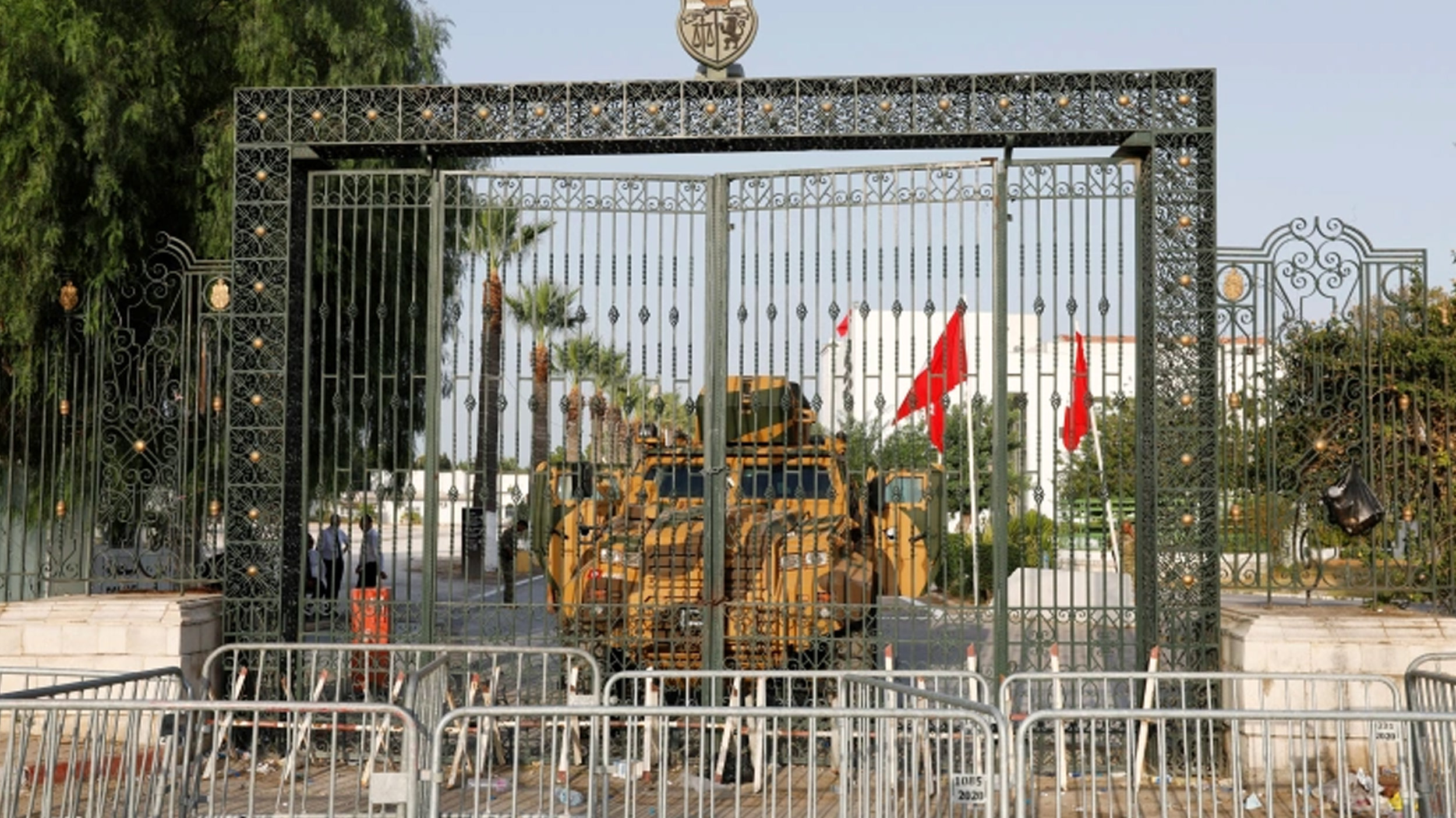
On 25 July 2021, Tunisian President Kais Saied invoked emergency powers under Article 80 of the constitution. Claiming the country was facing “imminent danger,” he subsequently dismissed the Mechichi government, suspended parliament, lifted parliamentarians’ immunity, and claimed prosecutorial powers for the presidency. The move came as the raging coronavirus epidemic brought the country’s health system to the brink of collapse, but this was simply the latest of a series of mounting economic and political crises.
The 2019 presidential and parliamentary elections ushered in a fragmented parliamentary and political landscape that made it impossible to form a stable government capable of addressing Tunisia’s problems. The deadlock was exacerbated by conflicts, both personal and jurisdictional, between the president and the former prime minister and between the president and the parliament, particularly Ennahda, the largest parliamentary party. Meanwhile, the constitutional body authorised to resolve questions of constitutional authority and the separation of powers—the constitutional court—has yet to be formed, giving rise to competing constitutional interpretations.
Saied’s actions further polarised an already deeply divided country and set off a profound controversy around the constitutionality of his invocation of Article 80 and the powers he has claimed under it. The domestic response has fallen into three broad camps. The first believes that Saied’s measures were necessary and constitutional and thus must be supported. Only the People’s Movement adopts this stance unreservedly. The second camp, which includes several political parties, civil society organisations, and most importantly the Tunisian General Labour Union (UGTT), views Saied’s actions as necessary, but is calling for some guarantees for a return to the democratic constitutional order. The final group views the emergency measures as a coup against elected institutions and democracy and is demanding an immediate termination of the state of exception. This is the position of parties that supported the Mechichi government, most importantly Ennahda, Heart of Tunisia and the Dignity Coalition, as well as various national figures and bodies.
With the exception of a few Arab states known for their antipathy to democracy and the Arab Spring, nearly all regional and international parties, including the United States, the European Union, the African Union and the United Nations, have expressed concern for Saied’s actions and their implications for the future of democracy in Tunisia.
Now more than a week after the emergency declaration, the situation in Tunisia remains fluid. Showing signs of hesitation and confusion, the president seems to have no plan, while opposition to his emergency measures is growing on the street and among the political elite. Throughout it all, the stance of the military has remained ambiguous. While it did not deploy in the streets or seize civilian institutions, it has carried out some of Saied’s measures, such as shutting down the parliament and denying parliamentarians’ entry. In this uncertain context, events could unfold in one of three ways.
First, the so-called coup could fail if the president is unable to execute his intentions in a timely way, which would entail the gradual rescinding of the emergency measures, particularly those related to parliament. Having secured the end of the Mechichi government, Saied could justify such a reversal to himself and his supporters, particularly given the considerable domestic and foreign pressure to refrain from further measures. In turn, regional mediation efforts may persuade Saied and parliamentary forces to pursue a more conciliatory path, perhaps through the formation of a consensus government. This is the most likely scenario given the support for it by influential domestic and foreign parties.
Second, the president could continue on the coup path, gradually expanding his exceptional powers, particularly if there is no street resistance and he feels the current level of pressure is bearable. This would derail democracy in Tunisia and could mean reprisals, large-scale political arrests, and possibly even the dissolution of political parties. While this scenario seems unlikely, certain regional parties may attempt to propel Saied down this path in the coming days.
Third, the coup could meet with popular resistance in the street, which could either lead to an explosion of violence and chaos or could thwart the coup and restore the previous status quo. This scenario is currently unlikely given that Ennahda has called on its supporters to withdraw from the street and given the difficulty of popular mobilisation under the bans on assembly and curfews announced by the president on 26 July. It could become more likely, however, if the emergency measures are prolonged and lead to large-scale political reprisals against the Saied’s opposition or threaten the entirely overturn the existing political order.
*This is a summary of a policy brief originally written in Arabic, available here.